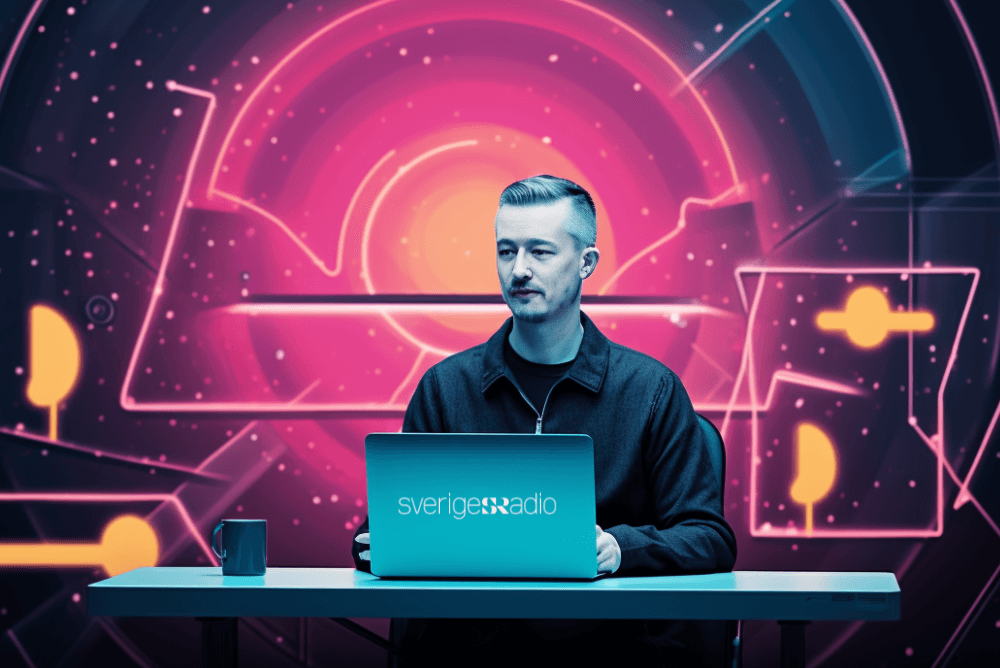Embracing the AI revolution in media – with Maciej Klepacki, CEO of Burda Media Polska
9 Aug 2023
Maciej Klepacki, CEO of Burda Media Polska, shares some important insights about the AI revolution and tech innovations.
In a recent episode of "The Newsroom of Tomorrow" podcast, Joanna Kocik sat down with Maciej Klepacki, CEO of Burda Media Polska, to discuss the impact of artificial intelligence (AI) on the media industry. As AI gains prominence, Klepacki views it as a revolutionary force that will reshape both personal and professional lives. Although AI is not an entirely new technology, its current widespread accessibility and utility make it a game-changer in the media landscape.
AI in content creation
The rise of AI in content creation is a hot topic, with tools like ChatGPT and other systems generating massive amounts of content – and Klepacki believes this will lead to an "arms race" among publishers. “We will produce more content, but it will be produced more cheaply and efficiently, and to a variety of platforms and channels" he says.
Klepacki also highlights the potential for AI to streamline content creation and automate tasks such as translations, photo selection, writing leads, and research, allowing media to publish across multiple platforms seamlessly. This surge in content production might blur the lines between large publishing groups and smaller portals, levelling the playing field and fostering competition.
When asked about the possible flood of AI-generated content, Klepacki mentions that AI-created content will improve in quality over time. "Content created using AI tools will be of better quality than that prepared without other tools. Photos of a fictional human can inspire more trust, so why should content generated according to our needs be lower quality?", he points out.
Read also: Which AI tools in journalism are really worth the hype?
AI in data analytics and addressing bias
In terms of utilizing AI for data analysis, Klepacki believes that real-time content analytics will become prevalent, stating, "Thanks to content recommendation engines, we will be able to deliver the right content to users more effectively and in real-time, not just draw conclusions from what happened." According to him, AI can help match content to users' needs, thereby increasing engagement and creating real value for media companies.
When asked about AI's potential to detect bias in content creation and distribution, Klepacki emphasizes the need for cautious and ethical application of algorithms in addressing gender representation, algorithmic exclusion, and privacy concerns. "Collaborative efforts involving ethicists, sociologists, professors, and engineers are essential to ensure AI development aligns with societal values", he states.
Read also: 7 bitter pills (and one sweet) to swallow if you want AI in your newsroom
Navigating the technological mega-acceleration
Amid fears of job displacement, Klepacki advises a proactive approach to AI implementation. Encouraging curiosity and openness to change is crucial in fostering an innovative culture. As AI transforms the media industry, embracing technological advancements will open new opportunities and make the work of content creators more engaging and meaningful.
Regarding Burda Media's approach to AI adoption, Klepacki says, "Today, we focus on tools and their integration into our publishing systems, and we're constantly testing them. We are talking about proof-of-concept solutions that can speed up the editor's work. So, we see a big opportunity for our Polish division as well."
Klepacki also emphasises the need for openness, experimentation, and a cautious approach in harnessing AI's potential. As media companies embrace AI-driven tools, they can navigate the changing landscape and unlock a new era of content creation and curation, benefiting both publishers and users.
Read also: How to build a knowledge system around a new tool?



